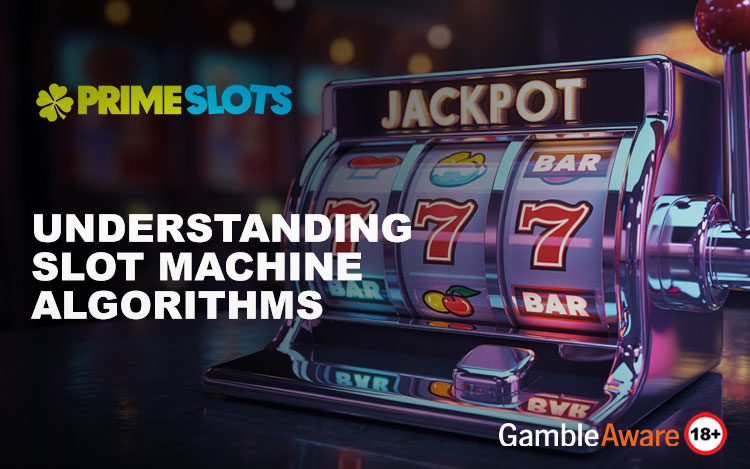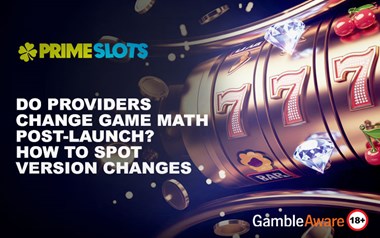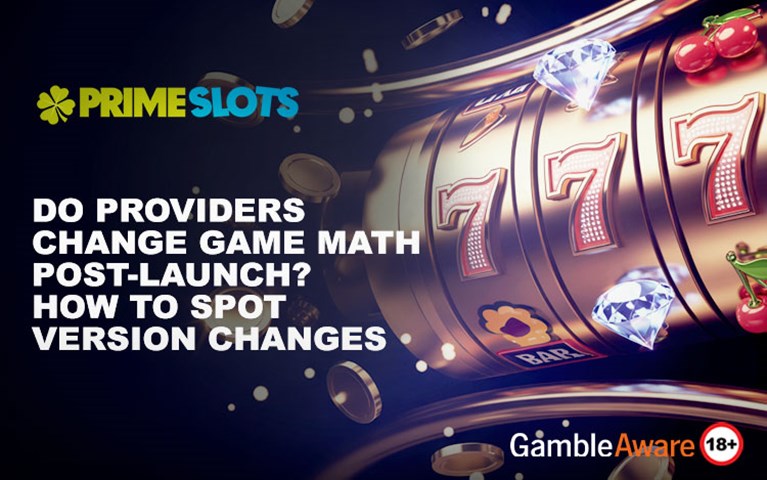Slot machines are a cornerstone of the online casino world, with games that range from classic three-reel styles to modern video slots packed with features. But behind the spinning reels and flashing lights lies a complex system of technology designed to ensure every spin is fair and random.
In this comprehensive guide, we delve into the mechanics behind slot machine algorithms, shedding light on how they work, how they ensure fair play, and dispelling some of the common myths surrounding them. Whether you're a seasoned player or exploring real money slots for the first time, this guide offers a clear, jargon-free breakdown of the systems that power your favourite titles on platforms like Prime Slots.
What Are Slot Machine Algorithms?
In simple terms, a slot machine algorithm is the set of instructions a game follows to determine the outcome of each spin. These algorithms are not just sequences of commands—they’re designed to maintain complete randomness and fairness for every player, every time.
The most critical component of a slot machine algorithm is the Random Number Generator (RNG), which drives the core functionality of both land-based and online slots.
How RNG Technology Works
The Random Number Generator, or RNG, is the heart of every slot machine. It’s a complex piece of software that constantly generates sequences of numbers, even when no one is playing. These numbers correspond to different reel positions and symbol combinations.
Here’s a simplified breakdown of the process:
- Continuous Generation: The RNG runs non-stop, producing thousands of number sequences per second.
- Input to Outcome: When you press the spin button, the RNG takes a snapshot of its current number and uses that to determine which symbols appear on the reels.
- Instant Calculation: This entire process happens in milliseconds, meaning the result of your spin is determined the moment you click.
Because the RNG is constantly generating numbers independently of any player interaction, there’s no way to predict or influence the outcome of a spin. This randomness is what makes real money slots both unpredictable and fair.
How Slot Algorithms Determine Spin Outcomes
When a spin is initiated, the algorithm references a virtual "reel strip" populated with symbols. The RNG selects a random number which is then mapped to a specific point on each virtual reel. The combination of these points determines the final position of symbols shown on the screen.
While it might appear that you’re just spinning mechanical reels, what you're actually seeing is a visual representation of an outcome already calculated by the algorithm. The key takeaway here is this: the spin result is already decided before the reels stop. The animations are simply there for visual effect and player engagement.
This process ensures consistency and fairness, removing any possibility of external influence or game manipulation.
Role of Algorithms in RTP and Volatility
Two key metrics that often accompany any online slot game are RTP (Return to Player) and volatility. Both are deeply tied to the game’s underlying algorithm.
Return to Player (RTP)
Slot RTP refers to the theoretical percentage of total wagers that a slot machine will pay back to players over time. For example, a slot with an RTP of 96% is expected to return £96 for every £100 wagered—over a very long period and across millions of spins.
The algorithm is designed to produce results that, when averaged over time, reflect this RTP. It’s crucial to understand that RTP is not a guarantee of short-term results. You might win big in 10 spins, or not at all in 100. It’s a long-term statistical measure.
Volatility
Slot volatility describes how often and how big you can expect wins to be. A low volatility slot offers frequent but smaller wins, while a high volatility slot offers less frequent but potentially larger payouts. The algorithm is programmed to adjust win frequencies and prize distributions to reflect the game’s intended volatility.
Ensuring Fairness and Security in Online Slots
Reputable online casinos, such as Prime Slots, rely on third-party testing agencies and strict licensing requirements to ensure all games meet industry standards for fairness and security. These regulators include the UK Gambling Commission (UKGC), and eCOGRA.
How is fairness tested?
- RNG Certification: Independent agencies audit the RNG software to confirm it produces truly random outcomes.
- Game Audits: Slot games are regularly tested to ensure the stated RTP matches actual gameplay data.
- Encryption: Top casinos use SSL encryption to protect player data and prevent tampering with gameplay or algorithms.
By playing on licensed platforms, you can be confident that the slot machine algorithms behind your favourite games are not only fair but also rigorously monitored for compliance.
Common Myths About Slot Algorithms – Debunked
There are countless misconceptions about how slot machines work. Let’s take a look at a few common myths and the facts behind them:
Myth 1: Slot machines “know” when you’re due a win.
Fact: RNG algorithms do not track your play history. Each spin is entirely independent, with the same odds regardless of past results
Myth 2: Playing at a certain time increases your chances.
Fact: RNGs operate 24/7, producing random outcomes at all times. The time of day has no effect on your chances of winning.
Myth 3: Online slots are rigged.
Fact: Licensed platforms must undergo rigorous testing. Regulated slots cannot be manipulated without being detected by oversight bodies.
Myth 4: There's a pattern to winning spins.
Fact: While players often try to find patterns, the entire purpose of an RNG is to eliminate predictability. No pattern exists.
Harness the power of Slot machine algorithms
Slot machine algorithms are marvels of modern gaming technology, ensuring every spin is governed by complete randomness and fairness. From RNG-driven outcomes to carefully calculated RTP and volatility, these systems are the foundation of trust in the world of real money slots.
Whether you're spinning on Prime Slots or another reputable platform, understanding how these algorithms work can enhance your appreciation for the game—and help you make informed decisions about which slots to play.
Always remember to play responsibly, and if you're ever unsure about a game’s fairness, look for certifications and licences from trusted regulators.












